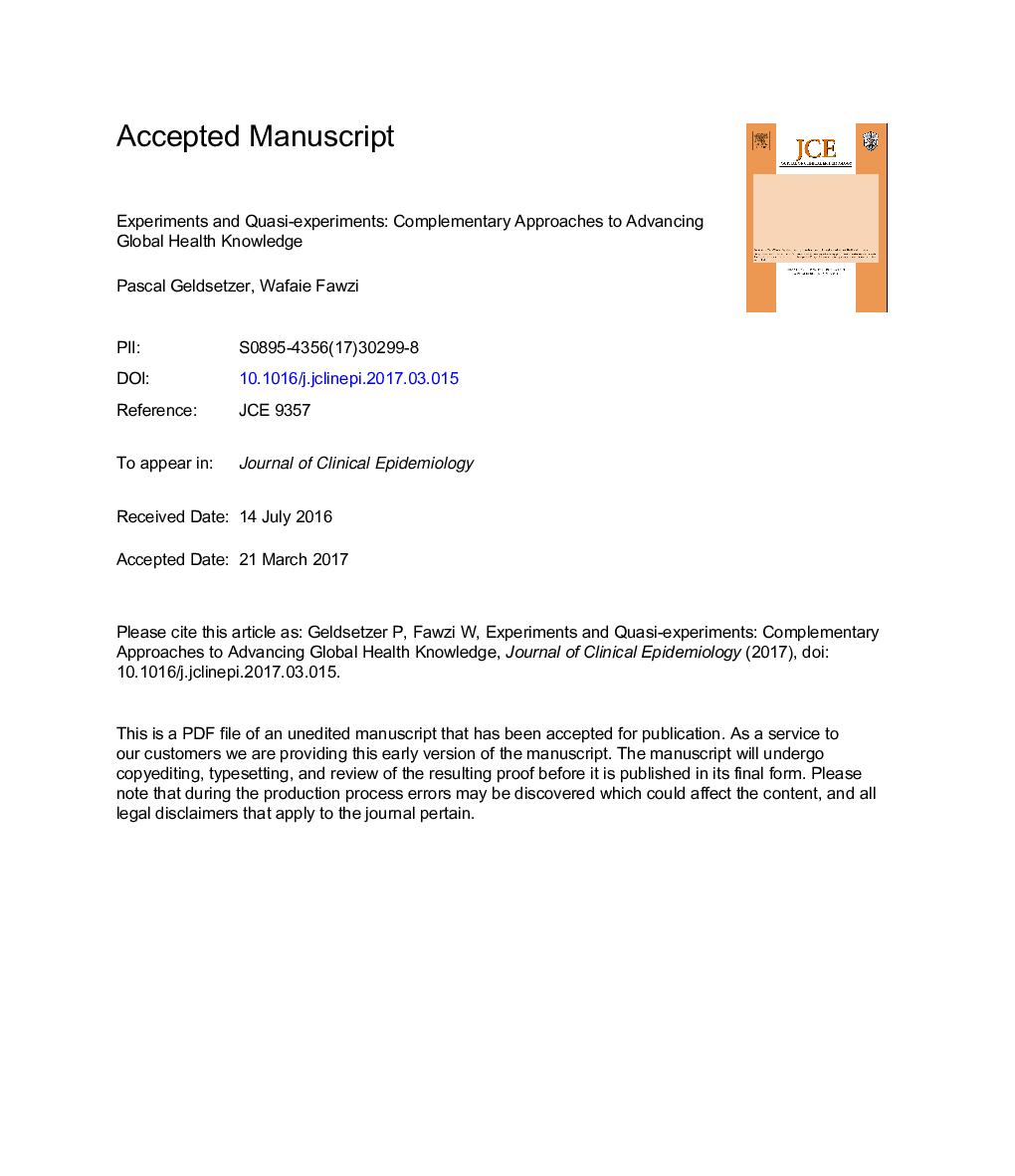| Article ID | Journal | Published Year | Pages | File Type |
|---|---|---|---|---|
| 7519469 | Journal of Clinical Epidemiology | 2017 | 14 Pages |
Abstract
Quasi-experiments have been infrequently used in the health sciences. Focusing on health systems implementation research, this article details key advantages of quasi-experiments and argues that they can complement (but not replace) randomized evaluations. Specifically, it may be possible to use a quasi-experiment to study the causal effect of an intervention that cannot feasibly be randomized or that would be unethical (e.g., because the intervention has become the standard of care) to test in a randomized controlled trial (RCT). In addition, because they usually take advantage of routinely collected data, quasi-experiments may be feasible when it is too costly (either financially or in terms of the required time) to carry out a RCT - an important advantage in research on health systems, which vary widely between settings. Nonetheless, we argue that RCTs will continue to be indispensable for implementation research because i) the assumptions needed to establish causality with a quasi-experiment are often unverifiable, ii) available data frequently do not allow for a rigorous quasi-experiment, and iii) randomized designs tend to lend themselves more to informing policy makers of causal effects prior to (or during) the full-scale rollout of an intervention than quasi-experiments.
Keywords
Related Topics
Health Sciences
Medicine and Dentistry
Public Health and Health Policy
Authors
Pascal Geldsetzer, Wafaie Fawzi,
